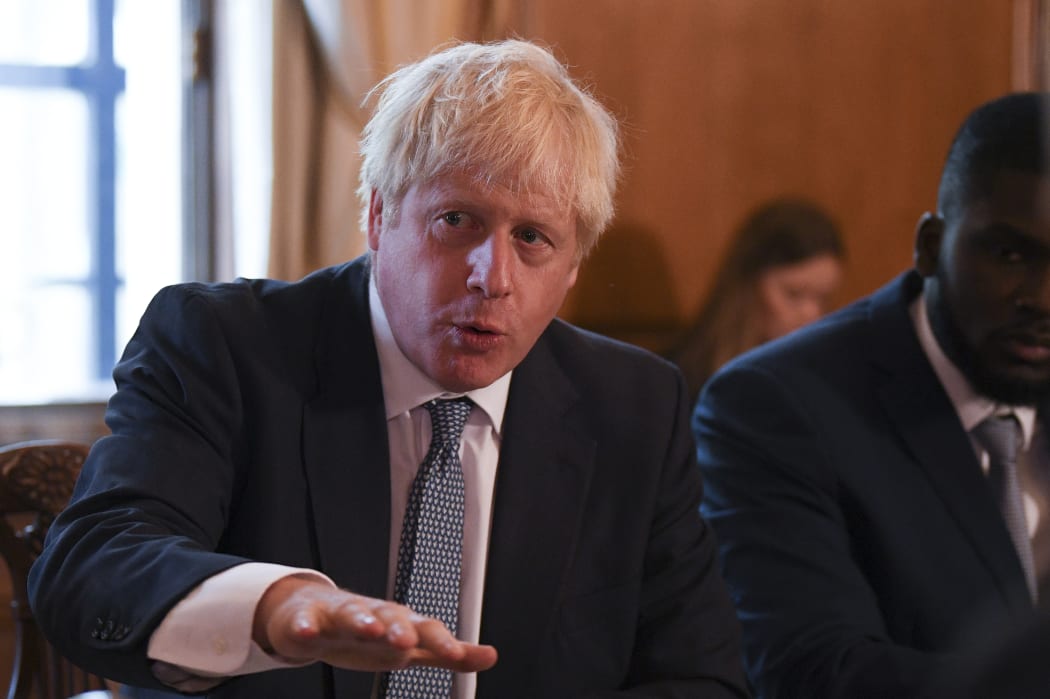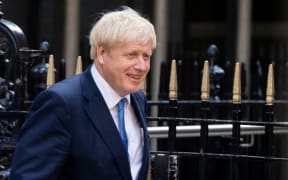The Queen has agreed to Prime Minister Boris Johnson's request for a suspension of the United Kingdom's parliament as the country heads towards its deadline for leaving the European Union.

British Prime Minister Boris Johnson Photo: AFP
The snap request by Mr Johnson caused outrage - even within his own Conservative Party - as MPs said it would prevent them from properly debating any terms of divorce that he can secure from the EU.
The suspension, or proroguing of parliament will begin on 10 September, ostensibly so that Mr Johnson, who's new to the role, can prepare his legislative agenda.
He said a Queen's Speech would take place when the parliament resumed on 14 October, outlining his "very exciting agenda".
Such suspensions to let a new government set out its plans usually last no more than a week.
But this one means MPs are unlikely to have time to pass laws to stop a no-deal Brexit on 31 October - and Mr Johnson's critics say that's precisely his motive.
The Tory backbencher Dominic Grieve called the move "an outrageous act".
He warned it could lead to a vote of no confidence in Mr Johnson, adding: "This government will come down."
But the prime minister said it was "completely untrue" to suggest the suspension was motivated by a desire to force through no deal.
He said he did not want to wait until after Brexit "before getting on with our plans to take this country forward", and insisted there would still be "ample time" for MPs to debate the UK's departure.
"We need new legislation. We've got to be bringing forward new and important bills and that's why we are going to have a Queen's Speech," he added.
MPs will return from their summer recess next week, and will then have just a few sitting days in the House of Commons to try to avert the suspension.
Mr Johnson had previously suggested proroguing parliament, but not how long for, and his request of the Queen has come as a shock to many.
Several high-profile figures, including former prime minister John Major, have threatened to go to the courts to stop it, and a legal challenge to the possibility of it is already working its way through the Scottish courts.
The BBC's Laura Kuenssberg said just a small number of government ministers knew about the plan in advance and it had caused a huge row.
She said the government would argue it was "a bog standard Queen's Speech process", despite all of the surrounding noise.
Mr Johnson has said he wants to leave the EU on 31 October with a deal, but it is "do or die" and he is willing to leave without one rather than miss the deadline.
That position has prompted some cross-party MPs to come together to try to block a possible no deal: if they can muster the numbers, that could include passing a motion of no confidence in the prime minister before 10 September.
The Conservative Party already runs a minority government, and it would not take many defiant Tory MPs to achieve that.
'Utterly scandalous'
Mr Grieve - a former attorney-general - told BBC Radio 5: "If the prime minister persists with this and doesn't back off, then I think the chances are that his administration will collapse.
"There is plenty of time to do that if necessary [and] I will certainly vote to bring down a Conservative government that persists in a course of action which is so unconstitutional."
Labour's deputy leader Tom Watson tweeted that the move was an "utterly scandalous affront to our democracy".
Scotland's First Minister Nicola Sturgeon said MPs must come together to stop the plan next week, or "today will go down in history as the day UK democracy died".
But the Conservative Party chairman James Cleverly defended the plan as what "all new governments do".
Parliament returns from summer recess - or break - next week, and another recess was expected to take place between roughly 13 September and 8 October to cover the political conference season.
There had been rumours, however, that the latter could be cancelled or shortened to keep business going in the run-up to Brexit.
A former Tory leader, Iain Duncan Smith told BBC Radio 5 the decision to suspend parliament was "not sinister at all", and the dates for suspension covered "pretty much" the same period as the party conference recess.
He said Mr Johnson was trying to get a new Brexit deal agreed, and MPs who were "charging around trying to stop [him] need to rethink themselves carefully".
- BBC





